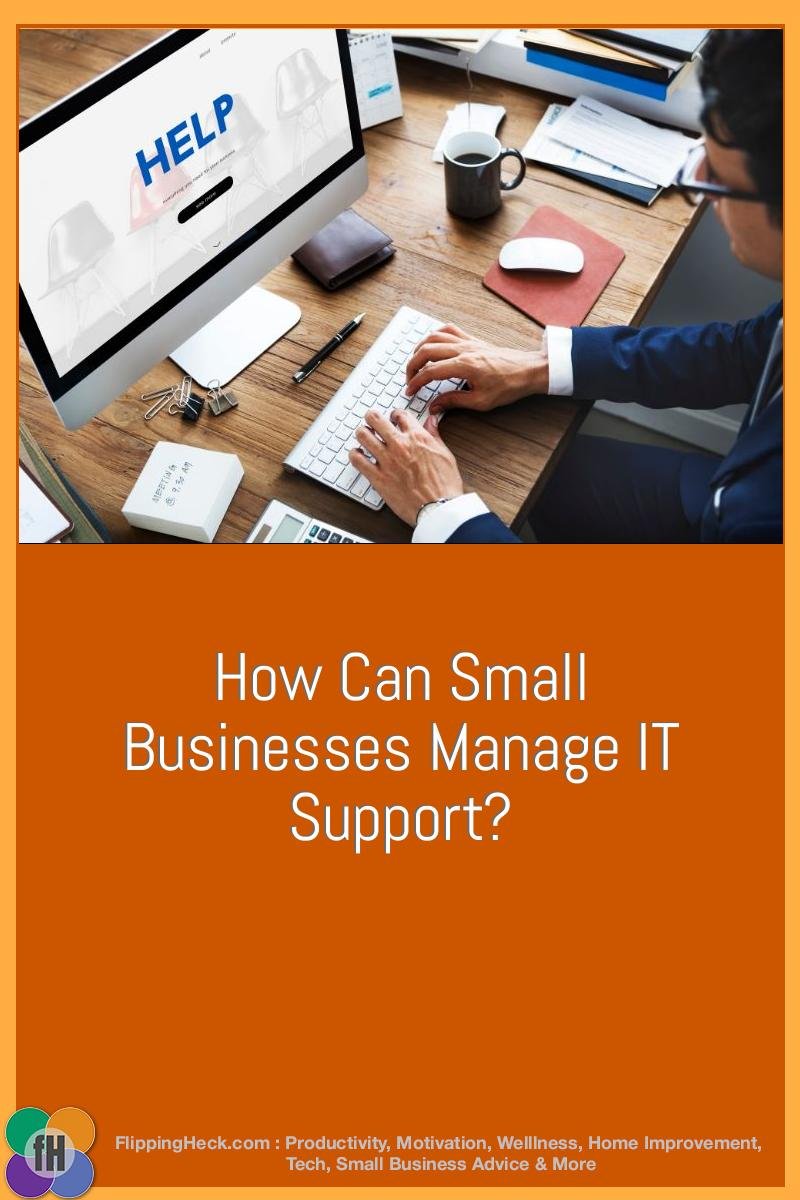How Can Small Businesses Manage IT Support?
As a small business owner you can wear many hats. You’ll be busy marketing your business either by promoting it on social media or designing flyers, you’ll be invoicing clients and chasing up payment and manufacturing your products or supplying your services. But what happens when tech doesn’t work? In this article we take a look at some of the support options available to small business owners.

As a small business owner you can wear many hats. You’ll be busy marketing your business either by promoting it on social media or designing flyers, you’ll be invoicing clients and chasing up payment and manufacturing your products or supplying your services.
When running a business you’ll also be aware of what an important role technology plays in your daily working life. Nearly all of the tasks in running a business now rely on some form of technology in order to work smoothly.
But what happens when tech doesn’t work? Maybe you can’t connect to your printer so your address labels won’t print? Maybe your hard drive is giving you errors and you can’t access your invoices or you keep getting the dreaded Windows “Blue Screen of Death”.
That’s where technical support comes in. And while you might think that it’s something you will only need every now and again it’s important to have a plan in place for when disaster strikes.
In this article we’ll take a look at the support options available so you can evaluate each type and choose the most appropriate one for your business.
In-house Technical Support
For many small businesses, IT support is handled by one person or a small team. Having someone devoted to your IT needs can be beneficial, especially for growing businesses, but it’s also very expensive.
If you’re a small business then you may not be able to afford the overhead of a dedicated IT technician so it’s important to weigh up what type of work they will be carrying out, what you can afford and whether it’s financially viable to have an employee in this dedicated role.
Contract Support
As an alternative to an in-house technician you can hire in a contractor. With a contractor you can hire them for a set number of hours (or days) a week/month so you are only paying for what you need them for.
While you are not paying for a dedicated employee, contractors can cost significantly more per hour and your contracted support technician won’t be on hand immediately when there is an issue, there is however more flexibility with contracted employees as to when and how often you call them in.
Outsourced IT Support
A lot of small businesses choose to outsource their tech support needs because it can be difficult and expensive to hire an in-house IT team but they need to have someone more readily available than a contractor.
While outsourcing your IT can also be costly, it means that you can get help that is specifically tailored to your issue at the time you need it.
With outsourced IT you are able to use companies that are local to you in order to ensure they have a quick response time in your time zone. For example if you’re located in England you can look for IT Support in Hertfordshire rather than relying on a call centre half-way across the globe.
Outsourced IT support often consists of a small team of experts who can help you resolve any issues that arise with your IT systems either on site or through a helpline and/or remote access. They can also help you set up and configure equipment for your employees, keep your network up to date, and secure your system against cyber attacks.
You can also get support from your IT provider on a per-user basis. This can be a good option for small businesses that have multiple employees who use the same software and need to access it frequently, but who can’t afford a full-time IT staff member.
Some providers offer additional services, such as analyzing IT issues to spot trends and keep track of them. This helps them provide the highest level of support possible for their clients.
IT Consulting Services
Some support companies have a full-time staff of technology consultants who can help with everything from implementing new computer hardware to setting up data networks, managing email servers and websites or other infrastructure.
Consulting Services can also be a good resource for helping businesses navigate the often-complex process of choosing, installing and maintaining computers, tablets and other devices that help your company run more efficiently.
Training Services
Some IT support companies also offer tech training for businesses who want to ensure their employees can use a certain software application properly or are worried about cyber security. This can be a great way to help your employees stay up-to-date with the latest features of these software programs, and it can also prevent future security threats.
Wrapping Up
Tech support isn’t something a small business owner can ignore as it can seriously hamper your productivity and reduce your profits when something goes wrong.
While you might be reasonably tech-savvy yourself, you might not be able to spare the time to solve every IT problem that occurs as well as keeping your business running.
With the options we’ve listed above there will hopefully be a suitable method of managing your IT systems that suits your budget and needs.
While having a dedicated team might seem like the best solution, unless you can afford it and have a lot of IT needs then outsourcing your support may be the most cost-effective way if you run into issues.
How do you manage your IT support issues? Do you try and do it all yourself or call someone in when you need them? Let us know in the comments below.

